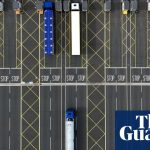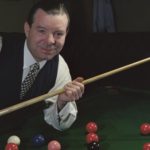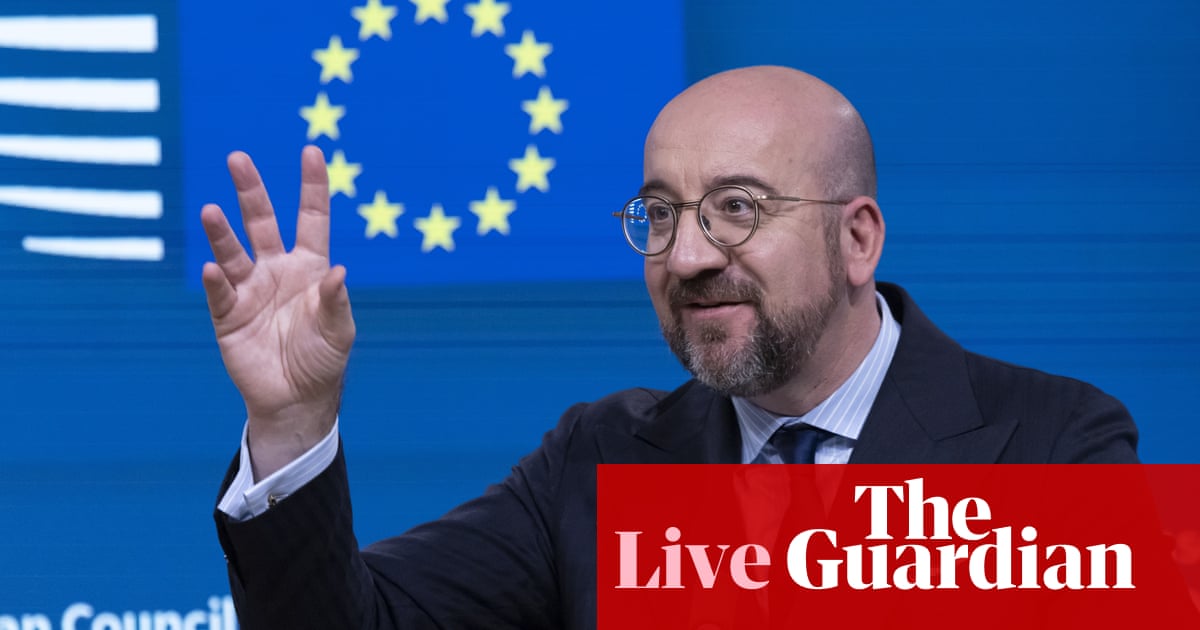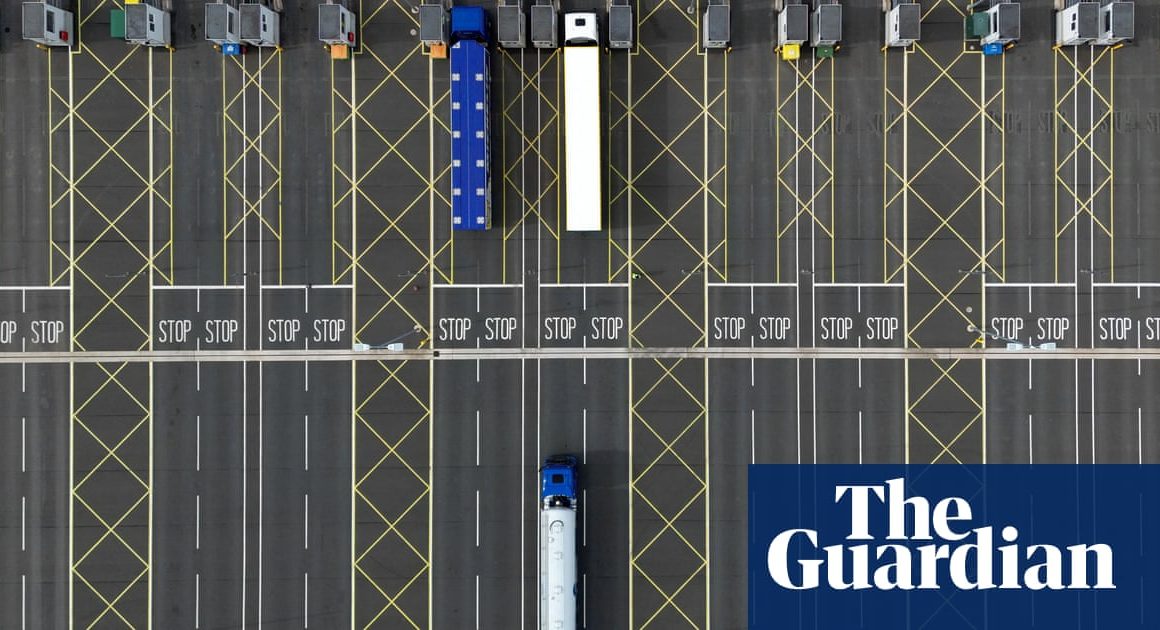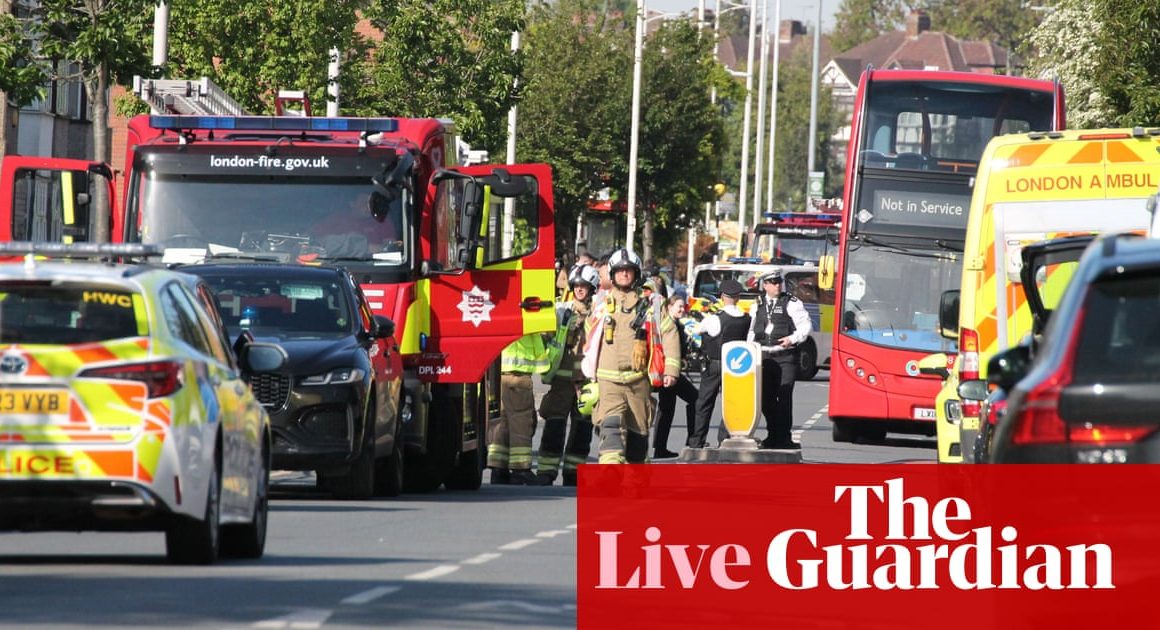EU leaders to address economic competitiveness, Ukraine and the Middle East
Leaders from the EU’s 27 member states will meet in Brussels today and tomorrow.
In his invitation letter, the European Council president, Charles Michel, said “our upcoming meeting will centre on bolstering our competitiveness” but that “topics of foreign policy will also feature high on our agenda.”
“We must collectively bridge the growth and innovation divide vis-a-vis our global counterparts and safeguard our economic, industrial and technological base,” Michel said.
When it comes to Ukraine, he said leaders “will address Russia’s persistent attacks on Ukrainian civilians and critical infrastructure, including in the energy sector. These underscore the urgency of intensifying our delivery of military assistance, notably air defence capabilities.”
Addressing the situation in the Middle East, he said:
Our commitment to work with partners to end the tragic crisis in Gaza with an immediate ceasefire and the release of hostages, as well as an urgent increase of unimpeded humanitarian aid at scale into Gaza, remains crucial.
Developments over the weekend have exacerbated an already highly volatile situation in the region.
We must condemn the recent attack by Iran against the people of Israel and unite in urging all parties to exercise the utmost restraint, respect international law, and avoid action that may increase tensions.
We must also address the situation in Lebanon, acknowledging the challenging circumstances it is facing, and reiterate our strong support at this critical time.
Key events

Lisa O’Carroll
Further restrictive measures against Iran following Tehran’s attack on Israel will be discussed over dinner tonight when the EU’s leaders meet in Brussels.
On the table are potential measures to impose sanctions on Iran’s missile and drone programmes as well as Russia-style sanctions on individuals or companies that support the Islamic Revolutionary Guard.
Sanctions on individuals, diplomats said ahead of the meeting, would be about making “life difficult” for Iranians involved but also their proxies whether in Iraq, Lebanon or Yemen or Sudan.
Also on the table is the mechanism – do they extend the Russia sanctions to cover Iran or do they start afresh?
Diplomats say sanctions could be politically agreed within “one and a half or two weeks” but that the purpose of tonight’s discussion is to determine the appetite for the two types of sanctions.
Germany, France and the UK have already backed a proposal to extend an existing sanctions regime.
The draft conclusions before the leaders is a declaration saying the EU is “ready to take further restrictive measures against Iran, notably in relation to unmanned aerial vehicles (UAVs) and missiles”.
If agreed it will also call on “Iran and its proxies to cease all attacks that may increase tensions in the region”.

Lisa O’Carroll
David Cameron, the UK foreign secretary, is urging G7 partners to step up support for Ukraine amid fears of a deteriorating situation in the country.
He is currently travelling to Italy for the G7 foreign ministers meeting.
“Ukraine has our unequivocal support until it is victorious and achieves a just peace. It is vital that we agree a way forward to use sanctioned Russian assets to support Ukraine and ensure Russia pays for the destruction it has wreaked,” he said.
The foreign and commonwealth office in the UK said it would call for the G7 to pilot more ambitious efforts to undermine Russia’s defence industrial complex.
Ahead of the leaders’ session, the Finnish ministerial committee on EU affairs outlined the country’s position, calling for the bloc’s strategic competitiveness to “be based on further developing the Union’s strengths and implementing market-based solutions.”
“A well-functioning single market based on free movement and an effective state aid and competition policy play a key role in promoting predictability and ensuring a favourable investment environment. Finland stresses the importance of open, rules-based and responsible international trade for Europe’s competitiveness,” the committee said.
Addressing the situation in Ukraine, the committee said “Finland emphasises that the EU must continue and increase its strong political, economic, and military support and humanitarian assistance.”
Helsinki also “supports the proposal by the Commission and the High Representative to use the additional profits from frozen Russian central bank assets to support Ukraine.”
On the Middle East, the Finnish committee said “the EU should work to promote a humanitarian ceasefire in Gaza.”
It added:
Finland stresses that the use of military force must be necessary and proportionate from the perspective of international law.
Finland strongly condemns Iran’s strike and emphasises the critical importance of de-escalation in the current tense situation in the Middle East.
Finland and the EU are making efforts to influence all parties to refrain from actions that further undermine regional security.
Ahead of the leaders’ meeting, the EU’s foreign policy chief, Josep Borrell, expressed the bloc’s support for Jordan.
Jordan has always been a beacon of stability in the Middle East.
At this difficult moment, Jordan has all #EU support in its attempts to bring peace to Gaza, and moderation and de-escalation in the region.
— Josep Borrell Fontelles (@JosepBorrellF) April 17, 2024
Ireland’s Simon Harris is not the only newcomer at the leaders’ table.
Bulgaria will be represented by Dimitar Glavchev, its caretaker prime minister.
New Irish leader to reiterate call for ‘urgent ceasefire in Gaza’
Simon Harris, Ireland’s new leader, said he will be repeating a “call for an urgent ceasefire in Gaza and the release of aid to the people of Gaza” during the European Council meeting.
“I will also continue to discuss the recognition of Palestine with like-minded partners,” he noted.
Harris added:
Ireland will use its voice to call for an urgent ceasefire in Gaza & restraint & deescalation in the region after Iran’s reckless attack on Israel.
Also look forward to engaging with counterparts on competitiveness & the single market
I am looking forward to attending my first European Council meeting today.
I will be repeating Ireland’s call for an urgent ceasefire in Gaza and the release of aid to the people of Gaza.
I will also continue to discuss the recognition of Palestine with like-minded partners
— Simon Harris TD (@SimonHarrisTD) April 17, 2024
Time for ‘new compass to guide the Single Market,’ report says
At their meeting, leaders will discuss a report by Enrico Letta, a former Italian prime minister.
“It is time to craft a new compass to guide the Single Market in this complex international scenario. Powerful forces of change – spanning demographics, technology, economics, and international relations – necessitate innovative and effective political responses,” Letta wrote.
“Given the ongoing crises and conflicts, action has become urgent, particularly as the window of opportunity to intervene and relaunch the European economy risks closing in the near future.”
Von der Leyen calls for boosting European defence industrial capacity
Ursula von der Leyen, the European Commission president and the centre-right European People’s party lead candidate in the European elections, has reiterated today her call for strengthening Europe’s defences – and “turbo charging our defence industrial capacity.”
Von der Leyen wants Europe to spend more on defence, and to spend it in Europe.
In this changing security environment, we need to focus on three priorities:
Strengthening Europe’s defence preparedness.
Turbo charging our defence industrial capacity—with spending more, spending better, spending European.
Strengthening our core partnerships. pic.twitter.com/MBtiUj3k9G
— Ursula von der Leyen (@vonderleyen) April 17, 2024
EU leaders to address economic competitiveness, Ukraine and the Middle East
Leaders from the EU’s 27 member states will meet in Brussels today and tomorrow.
In his invitation letter, the European Council president, Charles Michel, said “our upcoming meeting will centre on bolstering our competitiveness” but that “topics of foreign policy will also feature high on our agenda.”
“We must collectively bridge the growth and innovation divide vis-a-vis our global counterparts and safeguard our economic, industrial and technological base,” Michel said.
When it comes to Ukraine, he said leaders “will address Russia’s persistent attacks on Ukrainian civilians and critical infrastructure, including in the energy sector. These underscore the urgency of intensifying our delivery of military assistance, notably air defence capabilities.”
Addressing the situation in the Middle East, he said:
Our commitment to work with partners to end the tragic crisis in Gaza with an immediate ceasefire and the release of hostages, as well as an urgent increase of unimpeded humanitarian aid at scale into Gaza, remains crucial.
Developments over the weekend have exacerbated an already highly volatile situation in the region.
We must condemn the recent attack by Iran against the people of Israel and unite in urging all parties to exercise the utmost restraint, respect international law, and avoid action that may increase tensions.
We must also address the situation in Lebanon, acknowledging the challenging circumstances it is facing, and reiterate our strong support at this critical time.
Welcome to the blog
Good afternoon and welcome to a special edition of the Europe blog.
Today we will be looking at a gathering of EU leaders in Brussels.
Sends tips and comments to lili.bayer@theguardian.com.


